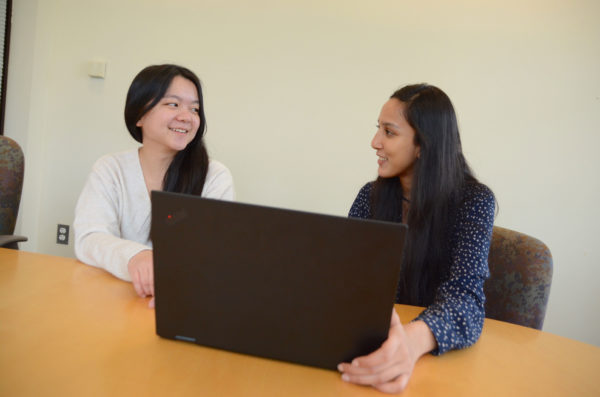How to Write a Resume

Be it for a college application, an internship, first job, or as part of a career change down the line—we could all use a refresher on how to write a resume.
Know What’s Available to You
Did you know that recruiters spend approximately eight seconds reviewing a resume?
That isn’t meant to scare you, especially if you’re attending or planning to attend Babson College, where 99% of undergraduates are employed or in graduate school within six months of graduation.
But, it is meant to make you aware of the importance of knowing how to write a resume, and that there are resources and tools available to help you do so.
Babson’s Hoffman Family Undergraduate Center for Career Development (CCD) first suggests using your college’s free career resources, such as VMock—an AI tool exclusively for current Babson students to get instant resume tips after submitting theirs for review of content and format.
Meeting with advisers also is key to figuring out potential career paths, and being in the know about current recruiting trends and needs.
Connect with Your Peers
If you’re more comfortable talking to people of a similar life stage, don’t be afraid to turn to some peers who are your senior. From leadership roles, to global internships and education abroad experience, students who have recently been in your shoes know the process best.

Valentina Tiffany ’19 (left) meets with Babson College Peer Career Consultant Disha Sethi ’20 (right)
Babson’s CCD now employs Peer Career Consultants (PCC) who are seniors with proven career skill expertise that offer regular drop-in time for students to talk through any career search or preparedness needs.
Disha Sethi ’20 is an international student, an Honors Scholar, and a Center for Women’s Entrepreneurial Leadership (CWEL) Scholar. She has held internships with Education First in Boston, a multinational software company in Mumbai, and also recently spent time with classmates and Lecturer Peter Cohan consulting for a startup in Paris.
“Since we’ve been through the experience, we (know) what they’re going through in their career journey,” said Sethi. “I do this because it really helps students out, and (especially) as an international student, I understand certain struggles.”
So, when asked, “What makes a good resume?” Sethi had a couple of quick tips.
How to Write a Resume
- First, “people are not consistent … and consistency is key,” she advised. From typos, to format, and even how you write out numbers or symbols—pay attention. “Employers give (resumes) a quick glance,” said Sethi. So, while consistency may seem small, it will actually “make a very big difference” if it ends up being all that they see.
- Second, “be as specific as you can, including numbers or anything that really stands out that makes your experience different,” said Sethi. Anyone “can have your title, but going into detail to explain what you did” will help make you stand out.
- Third, have conversations! Career Centers are there to help, provide constructive criticism, and to bring to light new ideas and opportunities that you may not yet have thought of. Advisors and peer consultants have seen many resumes, they’ve talked to employers, and they’ve seen what works (and doesn’t) across many different industries.
The takeaway? Keep it simple, be thoughtful, and take advantage of the resources made available to you.



